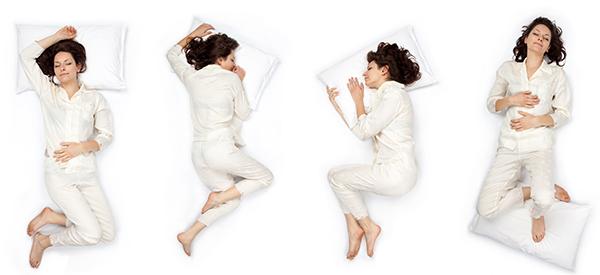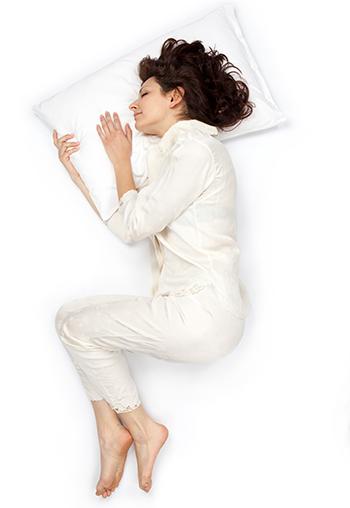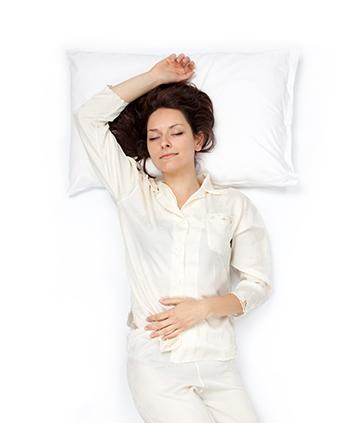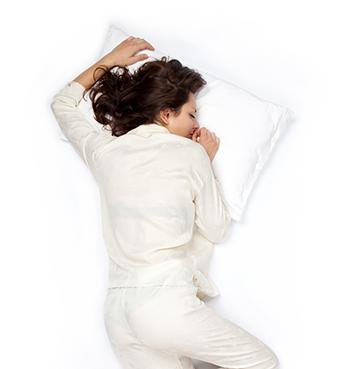
Are You Sleeping In This Position? Here’s How It Can Affect Your Health
Most of us go to bed every night without giving much thought to our sleeping position. We may have a preference for sleeping on our side or back, but don’t go so far as to consider the health effects of the way we sleep. However, according to sleep researchers and specialists, our sleeping position does matter: it can make a difference in whether we snore, wake up with neck and back pain, struggle with sleep apnea, and more.
So which position is most beneficial? And what effect does each one have on our health? We’ll look at these questions in detail in this blog.
What Is the Best Sleep Position?
According to a survey by WebMD, most people sleep on their back or side, and a small percentage sleep on their stomachs. Below is an overview of the different positions and how they can impact your health.
Sleeping on Your Side
For many people, this is the most comfortable sleeping position. When lying on your side, the spine can remain elongated and relatively neutral. The result is less neck, back, and shoulder pain, which is why so many doctors and sleep specialists recommend this position.
When you sleep on your side, you are less likely to experience loud snoring or sleep apnea because these positions don’t generally restrict your airway. Research has shown it can reduce the number of apneas and improve the quality of sleep, especially for those with arthritis and neck or back issues.
There may be other health benefits. According to researchers at Stony Brook University, sleeping in the fetal position may help delay the onset of Alzheimer’s, Parkinson’s, and other neurological diseases. This is because the position may improve the brain’s glymphatic system, which removes waste from the brain. This waste is believed to contribute to the development of neurodegenerative diseases.
So which side is better? Left or right? It actually depends on whether or not you have certain health conditions.
- Sleeping on the left side is best for pregnant women, especially in the second and third trimesters. This is due to increased blood flow to the placenta and improved kidney function, which reduces swelling in the mother’s legs and feet.
- Right side sleeping can aggravate heartburn symptoms. This is the case whether you have gastroesophageal reflux disease (GERD) or heartburn for another reason. Turn to your left side to relieve the discomfort.
Sleeping on the side is most comfortable when the chest and legs are kept straight, with the spine in an elongated, yet natural position. Support the head and neck with a firm pillow or ergonomic cushion and place a pillow between your legs to ease pressure on your lower back and provide better support for your hips and pelvis.
It should be noted that the fetal position causes your spine to assume an extreme curve. For some people, it can cause strain and discomfort on the neck and back. If you curl up tightly, it can also restrict your breathing because your diaphragm has limited space to expand. If you wake up with a sore neck or back, try assuming a ‘looser’ position by extending your arms in front of your body while you sleep.
Sleeping on Your Back
This is the second most common sleeping position. When you sleep flat on your back, your spine remains in a more natural position. It prevents some of the neck, shoulder, and back pain associated with other postures. Using a pillow to elevate the head can also help to reduce acid reflux problems.
The supine position is not for everyone, however. If you snore or suffer from sleep apnea, it can make your symptoms worse.
- As the tongue and soft tissues relax, gravity pulls them down into the airway, affecting your breathing and disrupting your sleep.
- You may experience thickening and problems with the carotid artery, which supplies blood to your face, neck, and brain.
You can reduce snoring and mild apnea by sleeping on your side or stomach, but those diagnosed with these sleep disorders should speak with their clinician about how to best modify their sleeping habits.
If you suffer from neck pain, you may wake up feeling uncomfortable after sleeping on your back. Support the neck with a low pillow or cervical cushion and prop up the knees with a medium-size pillow or large neck roll. This will also relieve discomfort and strain on the lower back.
Sleeping on Your Stomach
Sleeping face down in the least common position. However, it is generally not recommended despite its ability to reduce snoring.
- When your head is elevated by the pillow, keeping your spine in a neutral position becomes challenging. You may end up putting a strain on your neck and back because your spine is forced to overarch. Over time, this position may lead to pain, tingling, or numbness in the extremities.
- When you turn your head to the side on the pillow, it can reduce the size of your airway and limit blood circulation.
If you find yourself regularly sleeping on your stomach, try making these adjustments so the position is less stressful.
- Keep your neck straight and rest your forehead on the bottom edge of the pillow. This lets you breathe more freely while keeping your spine in a more neutral position.
- Use a thin pillow to raise your pelvis and reduce pressure on your lower back.
If you suffer from back pain, allergies, acid reflux, sleep apnea, or are pregnant, you may benefit from different sleep positions. In these cases, it may be worthwhile to try sleeping in a new position to ensure more restful slumber. According to the Sleep Foundation, one study involved training a group of adults with back pain to sleep on their backs or sides. They experienced significant pain relief after just four weeks. If you’re living with pain or any other health challenge, the right position may deliver the relief you need- in your sleep!
You may also like:
 The First Thing You Should Do Immediately After a Stroke
The First Thing You Should Do Immediately After a Stroke
Your Hip and Low Back are Aching Because…(Video)
7 Natural Remedies To Reduce Blood Clots And The Risk Of Stroke




I have shoulder pain when I sleep on my sides, especially the left
Not enough pillow support
Puts pressure on shoulder
Do you sleep with your arm underneath you? If you do (this is what I did and I don’t have pain anymore)!
Extend your left arm and it’ll help you fall asleep faster and you’ll wake up with no more pain.
It’ll take some getting use to! Try for about a week and you should notice a difference!!
is this position for people who sleep on their left side (me)?
I fall asleep on L or R side because I’ve been reading 😉 Awaken stretched out on my back, low pillow, every day. Apparently my body knows what it likes & is most comfortable using.🥰
I generally sleep on my sides changing between the two but am most comfortable sleeping in my left, so on my left arm etc… I have problems with my left shoulder due to an injury long ago, however find it aches more if I sleep on my right side and have it free. I do not know why.
I sleep in multiple positions every night, waking to change position each time. I have multiple issues to deal with and haven’t found a good way to sleep yet: mild sleep apnea, lymphedema in left arm, pacemaker in right chest, & spinal fusion of a birth defect. I often find myself waking in a semi-left/front or right/front position. Much of the time I am either on the edge of the corner of my pillow or without it at all. Any suggestions?
I start on my right side then shift to my left and then my back. I often stir with my head on my arm no pillow. I do not stay in one position all night as I have not done enough to wear me out during the day.
I sleep mostly on my stomach with no pillow at all. just turn my head sideways and one arm down by my side other up by my head. I turn my head towards the arm that is up. and often wake up on my back. If I lay on either side my hands go numb from carporal tunnel problems.